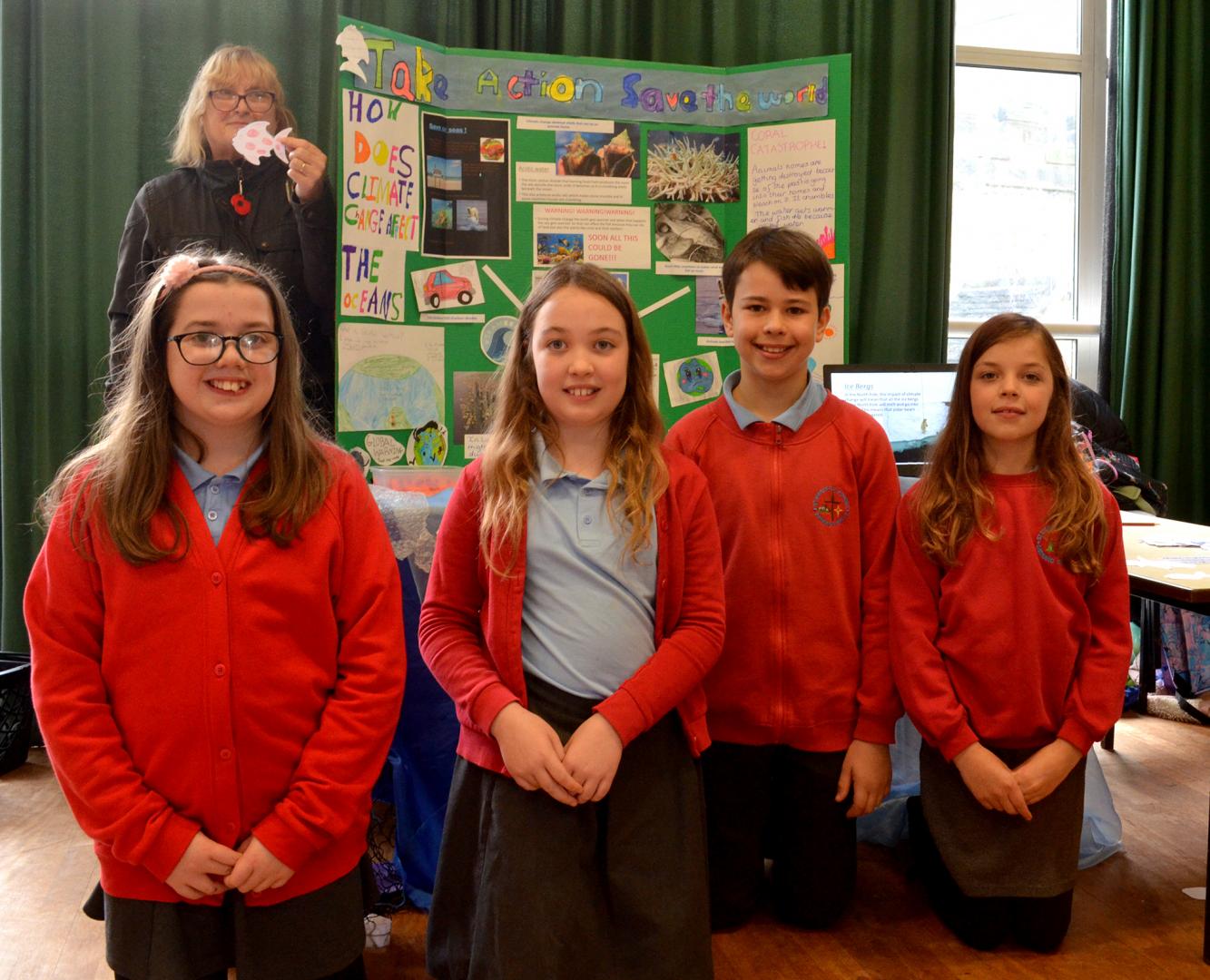STEPS people can take at a local level to tackle climate change were highlighted at a special event in Barnard Castle.
It was organised by the St Mary’s parish eco-church team to coincide with the Cop26 conference, which concludes in Glasgow this week.
A host of organisations, including schools, Durham University, Durham County Council and Oxfam, attended the climate change fair to show how making just a few small changes could help.
Abi Littlefair, one of the organisers, said the eco-church team was set up to try to make St Mary’s more eco-friendly by adopting sustainable practices and the chance to stage an event to coincide with Cop26 was one they could not miss.
“We want to make changes for the planet. It is God’s earth and we want to care for His creation,” she said.
“It is a huge chance to change our lives around and get people involved with everything Cop26 stands for.”
She thanked all the groups who took part and described the the number of visitors coming through the doors of the Parish Hall, in Newgate, as “amazing” .
Schools taking part included St Mary’s RC and Green Lane primaries.
Children at Green Lane have been taking part in a topic on the importance of rain forests and deforestation.
The younger children made all the artwork for the school’s stand while the older pupils came up with climate pledges – a series of simple steps they could do such as turning off lights and increased recycling.
They have also written letters to Prime Minister Boris Johnson and prepared a presentation about deforestation.
George Brown, a year five pupil and Daniel Dixon, from year six, joined Barney mayor Cllr Rima Chatterjee at the opening of the fair to give a speech they had prepared on deforestation.
The youngsters from St Mary’s RC Primary looked at the effect of climate change on the oceans and had come up with a simple experiment using ice cubes to highlight how rising sea levels would affect communities in the future.
They also asked visitors to sign a pledge to do their bit to protect the oceans from climate change.
Prof Douglas Halliday, from Durham University, was joined by three PhD students to highlight the research being done into renewable energy, while members of the Upper Teesdale Botany Group were on hand to highlight the threat posed by climate change to the special flora and fauna of the area.
Durham County Council was represented by members of the strategic waste management and low carbon teams, who outlined ongoing efforts to make the authority carbon neutral.
These include a new waste electrical and electronic equipment recycling scheme which has been launched.
Under the initiative, electrical items which are small enough to fit in a carrier bag – anything from CD players and radios to blenders, kettles and power tools – can be dropped off at collection points across the county, including Teesdale Leisure Centre, in Barnard Castle, and the community cafe at the Lipscomb Hall, in Cockfield.
The council also unveiled a new website – www.climatecountydurham.org.uk – which went live last week and offers tips on turning talk into action when it comes to tackling climate change.
ADVERTISEMENT
Fair outlines simple steps to help tackle climate change
ADVERTISEMENT
ADVERTISEMENT
ADVERTISEMENT






